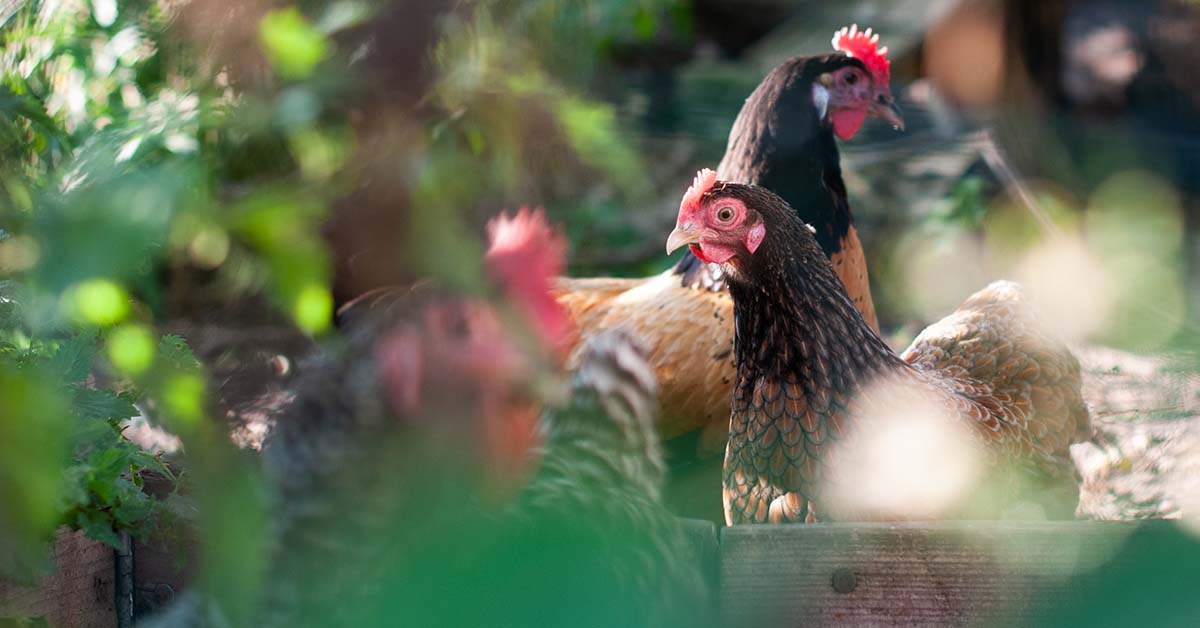The Best Plants for the Chicken Run

Are you trying to keep your hens busy and engaged when they can’t free range? Find out which plants are best to let them forage happily from the safety of their run. In this article, you’ll learn which plants are safe for your hens to eat, which can provide health benefits, which attract or repel insects and pests, and which ones will best supplement your flock’s diet with additional nutrients and protein.
Anyone who has ever tried to keep chickens and grow a garden at the same time knows that chickens love to eat fresh plants. If you let your flock free range, they will wreak havoc on just about any and all plants they can get their beaks on. Although this might be bad for your garden, it is actually very good for your birds. Foraging encourages your birds to be more active and adds variety to their diet, which will result in happier, healthier, better-adjusted hens that are less likely to grow bored and lash out at one another. Even if it isn’t practical or possible for your flock to free range, you can still gain some of the benefits of foraging for your flock by filling your run with plants that your birds will love to eat. A lush, green run will also attract insects for your girls to munch on, and larger plants might offer them shade on sunny days. Read on to find out the best plants to grow in your chicken run for happy, healthy hens.
What Plants to Avoid in Your Chicken Run?
Before we discuss the best plants to grow in a chicken run, we have to acknowledge some of the worst. Many common garden or yard plants are actually highly toxic to chickens, and it’s not uncommon for free ranging or foraging chickens to become ill or die after ingesting something they shouldn’t have. Although chickens are mostly able to avoid these poisonous plants on their own, owners should still avoid growing them in or near their coops and runs if at all possible. Common planted offenders include foxtail, rhubarb, tomatoes, holly, myrtle, elderberry, and angels’ trumpet. These aren’t the only toxic garden plants, however, so you should be sure to research any plant carefully before growing it in your run or feeding it to your hens. There are also a number of wild plants and weeds that can be toxic to birds, and you should research the native plants in your area to make sure none of these are growing around your girls.
What Plants are Health Boosting?
Having more variety in your hens’ diets always helps keep them healthier, in the same way it does for humans, but some plants can do even more to keep your birds healthy. Many herbs, in addition to being tasty for hens (and humans), have or may have antibiotic, antioxidant, or other health-boosting properties. Thyme, for example, is more than just a delicious add-in for a sauce or a casserole; it can also strengthen your chickens’ respiratory health and may help them fight off bacterial diseases. Another popular casserole ingredient, oregano, can strengthen their immune systems and has antibiotic properties. Sage, fennel, and nasturtium are some other common plants that may have serious health benefits for your hens.
What About Insects and Plants?
There is a thin line to walk with chicken coops and insects. On the one hand, chickens will happily gobble any insects they can find, and the protein they get this way is good and necessary for their health. On the other hand, some insects and bugs, like mites, are parasitic and can be extremely harmful to the whole flock. In general, there’s no need to worry about insects in the coop or the run; you can’t realistically keep them all out, and even if you could, it wouldn’t be good for the hens. However, if you are dealing with a parasite problem, there are some aromatic plants that may help keep the pests from coming back, though they’re obviously no substitute for appropriate medical treatment for the affected hen(s). Wormwood, lavender, and rosemary can all help repel insects, as well as giving off strong scents that might help cover up the equally strong but much less pleasant smells of the chicken coop. Conversely, if you’re worried about not having enough insects in your run ecosystem, flowering plants should attract more pollinators and other protein-rich snacks.
